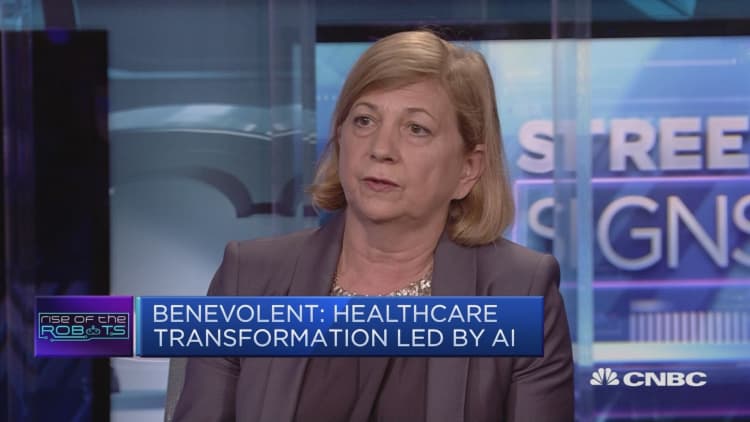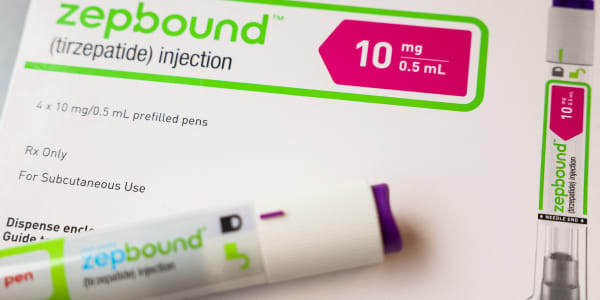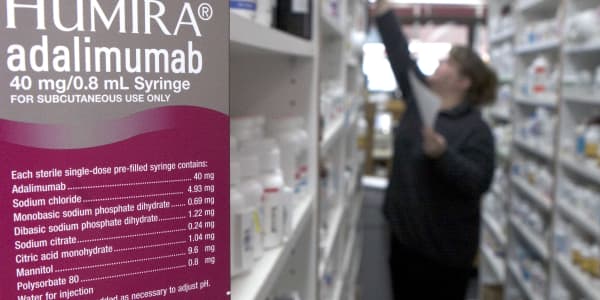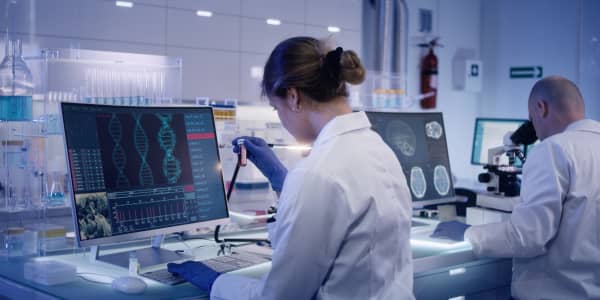In 2010, Rock Health was stationed in an old Chinese restaurant in San Francisco. When we made our first exploratory visit there to seek fresh insight about digital innovation and medical technology, the building still smelled faintly of ginger.
Our team from Mayo Clinic — the 150-year-old health-care organization that invented the first group practice of medicine — was looking to learn from a start-up in Chinatown.
Innovation springs up in unlikely places through unconventional collaborations. Late last year health-care industry watchers were abuzz with speculation when CVS and Aetna announced a merger designed to improve health-care delivery and lower costs through vertical integration. More recently, Amazon, Berkshire Hathaway and JP Morgan Chase revealed their plan to start a nonprofit health-care company for their combined U.S. workforce to accomplish the same goal.
Finding better, cheaper, faster ways to deliver care
At 18 percent of GDP, the U.S. health-care system is unsustainable in its current form. Collectively, we must find better, cheaper, faster ways to deliver care that meets the needs of patients and payers. Simultaneously, the physical, digital and biological worlds are merging, radically changing how we live and connect in all areas of our lives. The race is on to disrupt health care, both through system reform and scientific innovation.
From Mayo Clinic's vantage point, we see significant opportunities for biotech innovation and health-system improvement in a number of areas, including biotherapeutics, molecular imaging, genomics and software development.
Biotherapeutics, including immunotherapy, organ transplant and regenerative medicine, are blurring the lines between production by manufacturers and delivery by clinics and hospitals. Traditional manufacturing industries will need to merge with biological providers. A strong opportunity also exists in all parts of the supply chain.
Molecular imaging provides detailed views of molecular and cellular activity within the body as it happens. Molecular imaging techniques have significant potential to advance diagnosis and treatment for patients with cancer, heart and neurologic diseases.
Clinical genomics is fast becoming a standard of practice at leading medical centers. Using patients' unique genetic codes, physicians can more effectively and precisely diagnose, treat, predict and hopefully prevent disease.
Software development will foster advances that drive waste out of the health-care system. Computing, artificial intelligence and big data will allow researchers to analyze massive amounts of information, generating findings that raise overall standards of treatment and lower costs.
The importance of partnerships
Amid our excitement about the future of medicine, however, we recognize two things: 1) Disruptive innovation in health care will emerge from our blind spots, and 2) we must seek partners who can help us see the whole picture.
Through a history of trial and error, we've discovered the importance of broadening our view. When two Mayo Clinic staff members, researcher Edward Kendall and clinician Philip Hench, announced cortisone's impact on arthritis in 1949, they received the Nobel Prize in Physiology or Medicine. However, Mayo couldn't scale the innovation to reach patients around the world. Instead, Merck did that. Similarly, Mayo Clinic cardiovascular surgeons improved the heart-lung machine that transformed the field of cardiac surgery, but the Custom Engineering and Development Co. of St. Louis manufactured and sold the device so more patients could benefit from this medical advance. It's clear that we need to work with partners to ensure our ideas can be scaled to benefit patients.
Knowing this, we've restructured and realigned Mayo Clinic to build our partnership capabilities. This required entirely new mindsets about strategy, transparency, innovation and organizational structure. Our department of business development is now the portal into Mayo Clinic and has the full toolbox at its disposal — start-ups, license agreements, partnerships, joint ventures, acquisitions and venture investing. In this way, we can ensure that each viable idea is effectively commercialized for the benefit of patients and the health-care system, using the best tools available.

Our desire is to continue to transform health care — to attack fragmentation through disruptive innovation and to bring new diagnostics and therapeutics to market faster, regardless of where they may originate, while focusing on the needs of the patients.
In our ventures, we focus on scaling innovations that provide better clinical care at lower costs. For example, we collaborated to create GeneSight, a genetic test that helps health-care professionals select the right medication and dose for patients with neuropsychiatric conditions. Now available through Myriad, the test nearly doubles patient responsiveness to pharmacologic treatment. Another example is our work with Exact Sciences on a noninvasive, colorectal cancer screening test called Cologuard. A large, multisite study showed this simple, at-home test to be 92 percent sensitive for detecting colon cancer.
Now more than ever, stakeholders must reach beyond organizational boundaries to create significant medical progress and a sustainable, patient-centered health-care system. With many complex challenges to solve, patients are counting on the combined problem-solving power of seasoned industry leaders and visionary neophytes. We need both to quickly move from innovation to patient impact.
It's clear that we need to work with partners to ensure our ideas can be scaled to benefit patients. … Unlikely alliances will create new health-care solutions that change the world.
Unlikely alliances will create new health-care solutions that change the world. As Fortune 500 companies, millennial start-ups, manufacturing, IT groups and others join forces to develop answers, Mayo Clinic also pledges to bring our expertise to the table. And if a whiff of ginger happens to hang in the air, we'll now recognize it as the sweet smell of collaborative innovation.
John Noseworthy, M.D., is president and CEO of Mayo Clinic and a member of the Merck board of directors. For his service on this board, he receives annual financial compensation and deferred compensation in the form of shares of Merck stock. Mayo Clinic receives no compensation for his service on this board.
Dr. Noseworthy is also an advisory board member for Healthy Returns, CNBC's new health-care innovation conference that will take place on March 28, 2018, in New York City.





